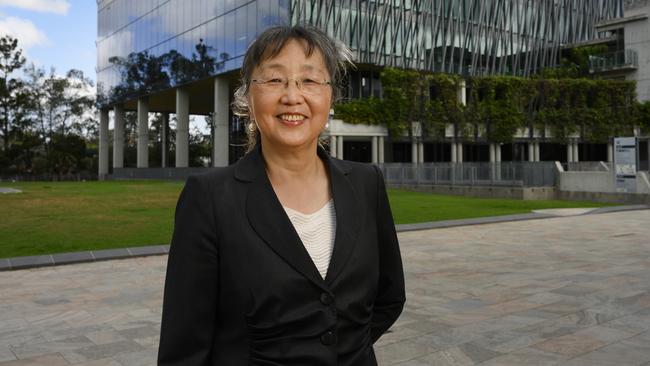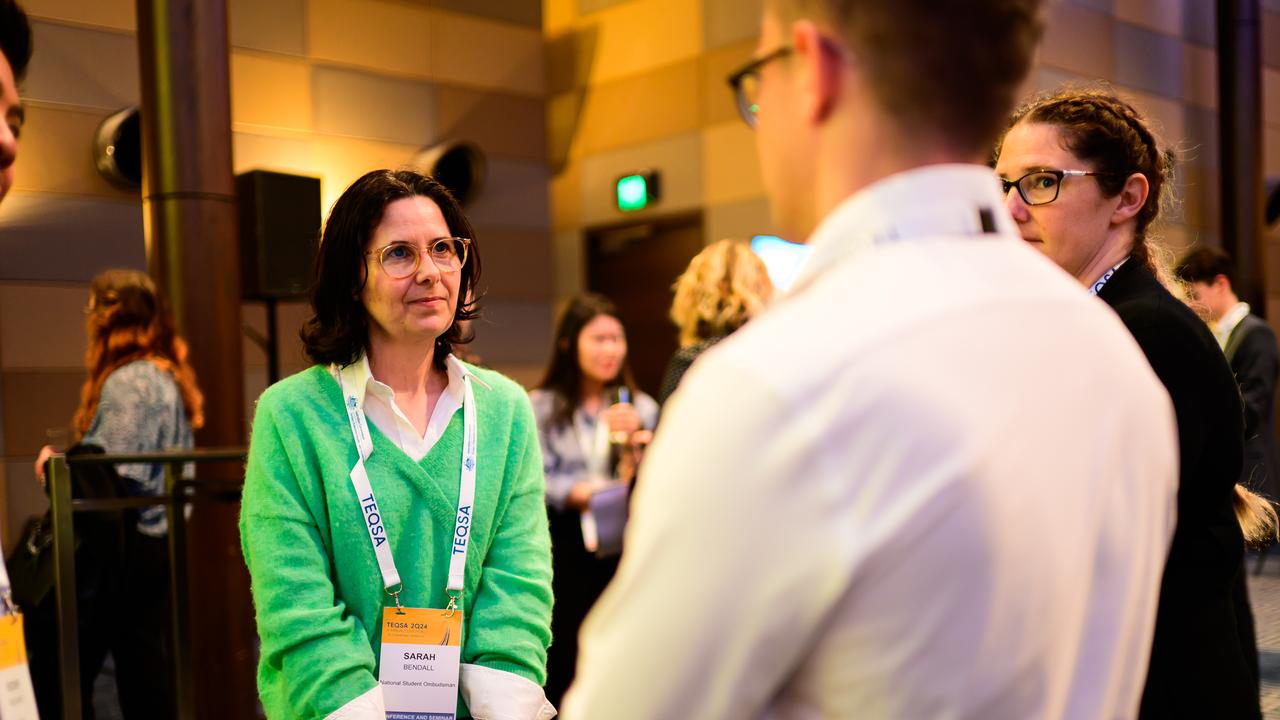Queensland University of Technology’s new chancellor is bouyed by hope
Queensland University of Technology chancellor Xiaoling Liu says growing up in Mao’s China taught her resilience.

Xiaoling Liu, the newly appointed chancellor of the Queensland University of Technology, is well-placed to advise on the coronavirus crisis engulfing Australian universities.
Born Chinese, she worked as a metallurgist and executive for Rio Tinto for many years before retiring from her executive position and later joining company boards.
Speaking and reading Chinese, she can see how the Chinese people coped with the chaos that began in their country, and how they are tentatively coming out the other side. And as a member of three company boards, Liu has the inside running on how Australia’s business community is facing the crashing economy and widespread shutdowns.
“It’s a big crisis, but it’s not just a big crisis for universities,” she says. “It’s a big crisis for the global community, for government and business as well, so I’m also dealing with that in my board positions.”
Read also: Unis announce massive cuts | Uni chief clings to his salary | Tear down research walls | Unis shouldn’t always be blamed |Into the breach with COVID-19
She believes the time will come for a re-evaluation of university policy with regards to online learning, “but right now our priority is the health and wellbeing of our students and staff”.
“It’s evolving almost daily, in terms of whether the university should remain open or shut, how much can we do online, is that effective,” she says, adding that she is in constant communication with the university’s vice-chancellor, Margaret Sheil, working on how best to manage the emergency.
“Once we get through this crisis, vice-chancellors will get together looking at how we can position ourselves better going forward.”
She understands crises from a first-hand perspective. In the 1970s, China’s ruling Communist Party sent Liu into the countryside to work on a farm. She was 18, and for 2½ years she worked in the fields, seven days a week in the good seasons, setting out before breakfast every day. She was on her own, her tearful parents left behind.
She was one of many millions of Chinese citizens caught up in the convulsion of the Cultural Revolution; killed, pilloried or sent into the countryside to work on farms.
“We were not the first batch, there were many batches before, so we knew it was going to be tough,” she says, adding she thought it was even tougher on her parents. “Probably psychologically, a lot of people suffered, they just couldn’t handle it. For me, it made me more resilient.”
After China’s supreme leader Mao Zedong died in 1976 and the far more liberal Deng Xiaoping took charge, Chinese universities began accepting students from all walks of life. Liu left the farm, then won a sought-after college place and enrolled at Chongqing University to study engineering. She is grateful to Deng to this day.
After she finished her bachelor’s degree, the university was short of lecturers because it had been closed for so many years, so she took an academic position. She then was awarded a postgraduate scholarship in Britain. She had to learn how to speak English before she went.
“Once I got the scholarship, I had six months’ intensive training in English, 14 to 16-hour days before I went to the UK,” she says. “But it was totally inadequate.” In 1983 Liu travelled to Britain to begin her doctorate at Imperial College London. Culture shock and her difficulties with English made life hard, but she had some help. “I was very fortunate,” she says. “My professor really took me into his family and said, ‘Xiaoling, you don’t just come to learn technology and science, you also should learn a new culture.’ ”
It took her 10 years, she estimates, before she became a fluent English speaker and began thinking in English, rather than thinking in Mandarin and translating to English in her head.
She finished her doctorate in three years, then worked as a research fellow at City, University of London for another two years. Serendipitously meeting an enthusiastic Rio Tinto Aluminium scientist at a conference, she applied for and was offered a position with the giant metals and mining corporation. “I came to Australia in 1988 and joined the Rio Tinto aluminium division as a research scientist,” she says. “I was in the Melbourne research centre for about 10 years, then I started moving to production jobs.”
Working with Rio Tinto for a total of 26 years, she put in 10 years of research work in Melbourne, and then switched paths and began work in management, beginning at Boyne Smelters in Gladstone.
“I would say the move to Gladstone was quite a defining movement for me, for my career,” she says. “For me to realise leadership quality has no national boundaries. People are looking for the same values in their leaders: things like trust, courage, fairness, respect and dignity.
“It very much set me free to be myself leading people; more trusting of my own ability.”
Her son and daughter weren’t so keen on the move. “One child in grade one, one in grade two,” she remembers. “I sent them to weekend Chinese school (in Melbourne) but when we moved to Gladstone they said the only good thing about leaving Melbourne was that they didn’t have to go to Chinese school.” Her children, now adult professionals and working in Melbourne, came to appreciate learning Mandarin when they were teenagers.
From Gladstone, Liu was moved every two or three years — “my daughter went to six schools in her 12 years of education” — and she was regularly promoted.
Her last job was as chief executive and president of Rio Tinto Minerals, based in Denver, in the US. Her husband, who by then was fully retired, went with her to the US. Liu retired at the end of 2014. Back in Melbourne, she decided to give non-executive roles a try. She took an Australian Institute of Company Directors course and in September 2015 she started her first non-executive director role with Newcrest Mining, almost a year after she retired from Rio Tinto.
Being a chancellor, she thinks, is much the same as being chairman of a company board.
“Through the council, what we do is really ensure the university has the right strategic direction, and also managing risk properly,” she says, adding that a chancellor should be careful not to overstep.
“A chancellor provides leadership oversight, but not,” she emphasises the word not, “meddling with its operation.
“There is a difference between governance and management. I’m very mindful of that.”


